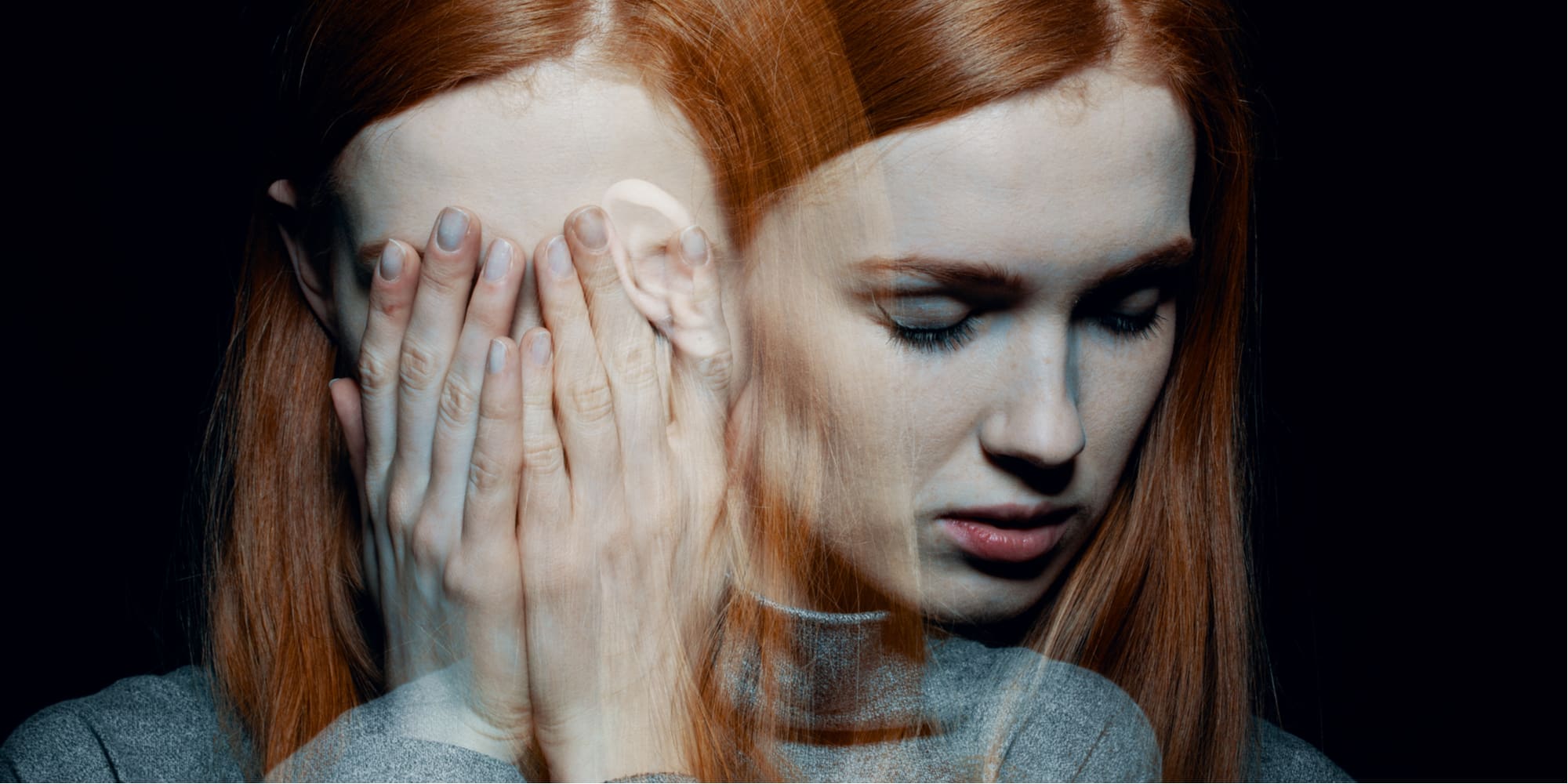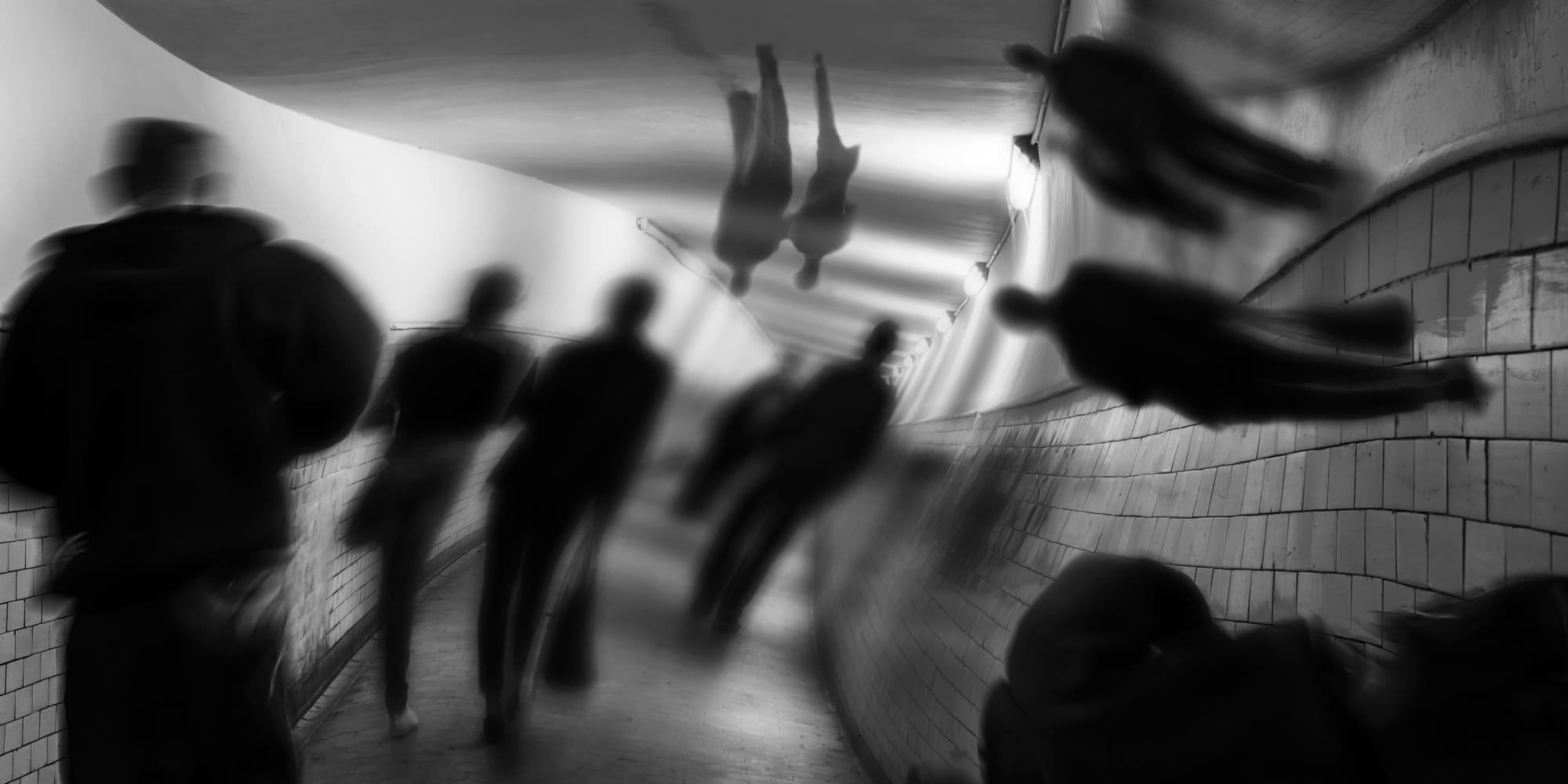Derealization is a sign of mental health issues that isn’t as well-known as other common mental illness symptoms, like chronic depression or social anxiety. That’s partly to do with the fact that only one to two percent of people are diagnosed with depersonalization-derealization disorder. However, it is an experience that isn’t all that uncommon, even if you aren’t sure what it’s called while you’re experiencing it. Most people have a feeling of derealization or depersonalization at some point in their lives.
Understanding the signs and symptoms of derealization will help you identify it in your life. And, just as importantly, knowing the symptoms can help you determine if your experiences are the result of an underlying mental health condition.
Contents
Signs and Symptoms of Derealization

Derealization isn’t something that you feel all the time. Instead, it comes and goes. Signs you are experiencing an episode include:
- Feeling that your head is in a fog
- The world seems unreal or dulled down
- Objects and people appear blurry, colorless, or two-dimensional
- Sounds are distorted
- Time doesn’t feel like it’s moving at its normal pace
It’s almost as if you feel like you aren’t really there, or you’re living in a dream. Although the illusion can be very convincing, you still know it’s an illusion. That distinguishes depersonalization from psychotic disorders, like schizophrenia, where the distortions are perceived as real. Because you know these illusions aren’t real, you might start to worry about your sanity. But it’s important to remember that even if you are living with a mental health condition, you are never beyond help.
Symptoms may appear infrequently, and episodes can differ in length. Some may experience depersonalization for a few minutes, while others may have the same detached feeling for days or weeks at a time.
If symptoms appear often enough, you may find it difficult to function at work or school. They can also interfere with interpersonal relationships, since others might assume that you find them boring. The more frequently symptoms occur, the more prolonged symptoms are, and the more they interfere with your life, the more likely it is that you have depersonalization-derealization disorder.
How Derealization Differs from Depersonalization
Derealization and depersonalization are categorized together in the DSM-5 and the Merck manual. You cannot be diagnosed with derealization without also being diagnosed without depersonalization, but the experiences of both are different.
Derealization focuses on a feeling of detachment from your environment. Objects, locations, and people appear different, but you appear and feel the same. In contrast, depersonalization involves feeling detached from your own body.
It is often accompanied by symptoms that include:
- Feeling like you’re outside your body observing yourself
- Feeling like you aren’t in control of yourself
- Body parts appear distorted
- The sensation that your head is wrapped in cotton
- Emotional and physical numbness to what’s happening and your own memories
Distinctions are not currently made between people who experience one over the other. If you experience episodes of derealization and are diagnosed, you will also be diagnosed with depersonalization, even if your symptoms have more to do with your environment than yourself. This is not to overlook your experience, but because professionals treat both issues in the same ways.
Possible Causes of Derealization


Although derealization-depersonalization disorder can be diagnosed on its own, it is often caused by another physical health condition or mental illness.
Physical health conditions that sometimes prompt episodes of derealization include seizures and dementia. Drug use can also increase your chances of experiencing an episode.
Many mental health challenges can accompany feelings of detachment from your environment. Emotional abuse or neglect as a young child, as well as the unexpected death of a loved one can impact your chances of experiencing this disorder. Experiencing a traumatic event, like war, an accident, or a natural disaster, can also result in symptoms of derealization.
After the initial event, symptoms no longer have to be triggered by something serious. They often occur as a result of the normal stresses of everyday life. You may feel a sense of detachment during an especially boring meeting at work or during a stressful conversation with a loved one.
Other dissociative disorders, like dissociative identity disorder and dissociative amnesia, can accompany the feelings of detachment that come with derealization. Depression or anxiety can also trigger symptoms, as can having a panic attack. When episodes are accompanied by serious symptoms of depression and other mental illnesses, like thoughts of suicide or self-harm, it’s a good idea to get professional help.
How to Get Help
At Port St. Lucie hospital, we employ evidence-based mental health care treatments to help you navigate your derealization symptoms. Our adult mental health program provides care from physicians, nurses, counselors, and other experts to help you cope with derealization. This inpatient treatment program will give you a space to safely and comfortably heal without daily distractions.
Sometimes, people with derealization-depersonalization disorder may turn to drugs or alcohol to manage symptoms. This can lead to co-occurring addiction issues, or substance use disorders that occur as a result of mental illness. If this sounds familiar, our dual diagnosis program can help. At this level of care, you will undergo inpatient treatment with addiction and mental health professionals to learn new, healthy coping techniques that will keep you happy and sober in the long term.
Call Port St. Lucie Hospital at (772) 238-7734 or fill out our online form if you need help. We can assess your symptoms and provide you with a personalized treatment program that will help you deal with your symptoms so that you can get back to living life on your own terms.



























